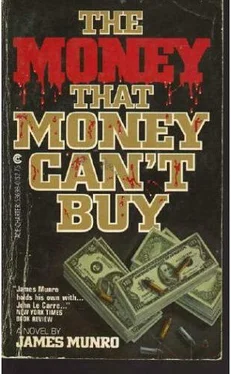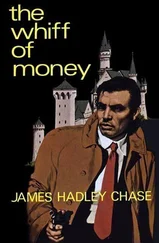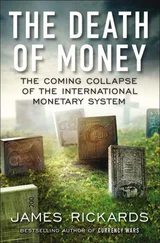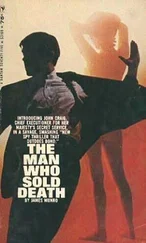Chelichev had sworn then for thirty seconds, and in a foreign language, and Loomis had interrupted him. First he explained the old English custom of tit for tat—of Jean-Luc Calvet for James Soong. No one was allowed to come into his parish and knock people off. Not even a man he respected as much as General Chelichev. And to Craig's amazement the Russian had apologized. Chelichev said he realized how unprofessional it was, but he had no choice. And besides, even if Loomis didn't realize it, he, Chelichev, had been doing Loomis a favor.
"He enjoyed that bit," said Loomis. "That's all he bloody did enjoy."
Craig read on. Loomis now knew why Soong had been murdered, though the reasons for this had been omitted from Craig's transcript. The reasons had come from Calvet, that much was clear, and even clearer was Chelichev's unsatisfied desire to know what had made Calvet talk. There followed a lengthy interval of bargaining over an unspecified job Chelichev wanted done, and what Loomis was to get in return; then both men assured each other that nothing must be done to alarm the Germans or the French, and there Craig's transcript ended.
"You're being cryptic again," said Craig.
"Can't help it," said Loomis. "I've got orders, too."
"Do they allow you to tell me what all this bargaining's about?"
"The Chinese are building rockets," said Loomis. "The Russkies know where they're going to be sited. If we do them this little favor they'll tell us. Useful that."
"This little favor," said Craig. "You did say 'we'?"
"More 'you,' really," said Loomis. "I'm too fat —and too important."
"Mind telling me what it is?"
"Of course," said Loomis. "You're going to help them rob a bank." He would say no more.
Japanese judoka who had taught him in London, would only say that Craig was better than he was— and he was a third dan in karate. For Craig, each hand, each foot, was a deadly weapon. He could, quite literally, kill with one finger. What use was lead pipe against that? And he had broken Fat Arthur's arm, quickly and surely, as one snaps a dry stick, for no other reason than that he disliked him. Loomis contemplated the fact that, like Frankenstein, he had created a monster. In Japan there were a handful of men who could kill Craig. Someday, maybe soon, one of them might have to.
The Mark X sliced past the family saloons as speedometer and tachometer needles revolved. A sign that said "ROUNDABOUT. REDUCE SPEED NOW"went by in a blur. Loomis lay back in the front seat, squat as a frog, and at the last possible second Craig eased on the brake and the big car squealed its outraged protest, circling the roundabout, while a man in a saloon, with his wife beside him and three kids in the back, stood on his brakes, inches from the Jaguar, swore once, then turned green. Craig's foot swiveled back to the accelerator. He said nothing, and Loomis thought how useful his monster was, and wondered when the monstrosity would outweigh the usefulness.
"You're not supposed to kill me, son," said Loomis.
"I never do," said Craig, "or anybody else. Unless you tell me."
He left the A.l then, and idled through Hertfordshire, pastel bright in the spring sunshine, through winding, leafy lanes as sentimental as calendar pictures, until he reached the nursing home.
It had once been a country house of modest dimensions, and its conversion had been thorough and discreet. The lodge gate was a sheet of steel, the lodge itself of solid stone, with tiny windows. The men inside it were armed, and safe from anything smaller than a tank. The house walls were of smooth stone, without footholds and ten feet high. Electrified wire and barbed wire topped the walls: the angle irons that held them in position each contained the photoelectric cells of an alarm system. From a shed near the house came the hum of a generator: the nursing home had its own power supply. Among the elegant parterres of the flowerbeds were plastic mines. The place was what it was supposed to be—impregnable.
Loomis showed himself at the window, the gate swung open, and Craig drove in. As he did so, he knew he was held in a crossfire, knew too that a pack of dogs watched him, ready to attack if he got out of the car before he reached the portico of the house. By the time they'd reached the house, the doors were open. They could see no people in the hall, but they were there all right. And the dogs. The doors shut behind them.
"Wetherly's been looking after Calvet," said Loomis. "Done a lovely job. Matt Chinn's here too."
Wetherly was a psychiatrist who belonged, body and soul, to Department K. His security classification was as high as Loomis's. It had to be: from time to time he examined everyone in the department, from Loomis down. But Sir Matthew Chinn was different; he was a civilian psychiatric specialist of such eminence that the rich had to pay his weight in diamonds to obtain a visit.
"He's been having a look at Grierson," said Loomis. "After we've finished I want him to look at you."
He marched toward a door labeled "Group Psychotherapy." As he did so Craig's hand gripped his arm, and for all his weight Loomis had to turn to him.
"I'm not going crazy," said Craig. "I just like my
job." Then he hesitated, looked almost puzzled.
"Maybe that's crazy," he said.
* * *
Calvet was waiting with Wetherly. The brooding Slav look Craig remembered had gone, and now he was full of life, with a hypermanic's impatience when nothing was happening. As they watched, he arranged a table and four chairs, laid out scribbling pads and pencils, then turned to Wetherly with a contented sigh.
"We're all ready, I think," he said.
Wetherly, a bland, Pickwickian cherub, beamed at him, and Calvet sat down.
"You've met Craig before," said Wetherly. Calvet nodded, not looking at Craig.
"What's he on?" asked Craig.
Calvet scowled, and rapped on the table with his pencil.
"I'm not deaf," he said.
"Now, now," said Wetherly. "Craig can't help the way he is. None of us can."
"That's true," Calvet said. The pencil continued to tap.
"Jean-Luc's on pentathol from time to time," Wetherly said. "He likes it."
"It makes me tell the truth," said Calvet. "That's what I like."
"By the way, he's always Calvet now. Jean-Luc Calvet. Jean-Luc to his friends. There isn't any Dovzhenko."
"Dovzhenko's dead," said Calvet, and the pencil tapped on in the same broken rhythm.
"Morse code," said Wetherly. "Listen."
The pencil said "F-R-E-E" over and over.
"That's how I feel all the time," said Calvet, then his glance moved to Craig, and he snapped the pencil in two, stood up, and walked over to him. Craig moved slightly, his feet apart, weight evenly balanced, hands open by his sides. It was the beginning of the karate ritual. He should bow then, and utter the apologetic words that were also a warning: "I come to you with empty hands." He did neither.
"You killed Dovzhenko," Jean-Luc said.
Loomis growled: "Look, son," and Wetherly touched his arm. He was smiling.
"I'm very glad you did," said Calvet. "You set Calvet free." He slapped Craig on the shoulder and turned to the table.
"Come on," he said. "We've got work to do."
They sat round the table: four men who might be meditating the possibility of a little slam in spades.
"He knows about James Soong," said Loomis. It was like hauling the keystone out of a dam. Jean-Luc foamed words, and the others listened, as Craig took notes.
Soong had once belonged to Chinese Internal
Security, starting with the Tiger Beaters, the men and women who specialized in the detection of de-viationists and bourgeois. From there he had been transferred, because of his exceptional promise, to the group called Wrong Thoughts Corrected, a counterintelligence unit that specialized in the surveillance of Russia. He had been one of the last students there before the split, and had arranged the death of S. I. Lemkov, Russia's leading expert on Chinese affairs. From Russia he had gone to Tunisia, then to Morocco, where he had become aware of Russian efforts to find him. (The KGB's Executive Division had put Soong's death, preferably after interrogation, as a matter of top priority. It had been an agent of Calvet-Dovzhenko's who had found him in Tangier.) He disappeared from Morocco, and another KGB man, doing what amounted to a regulation checkup of Calder Hall, had spotted him in Keswick. The need for interrogation had passed by then; the Executive Division had therefore killed him.
Читать дальше












